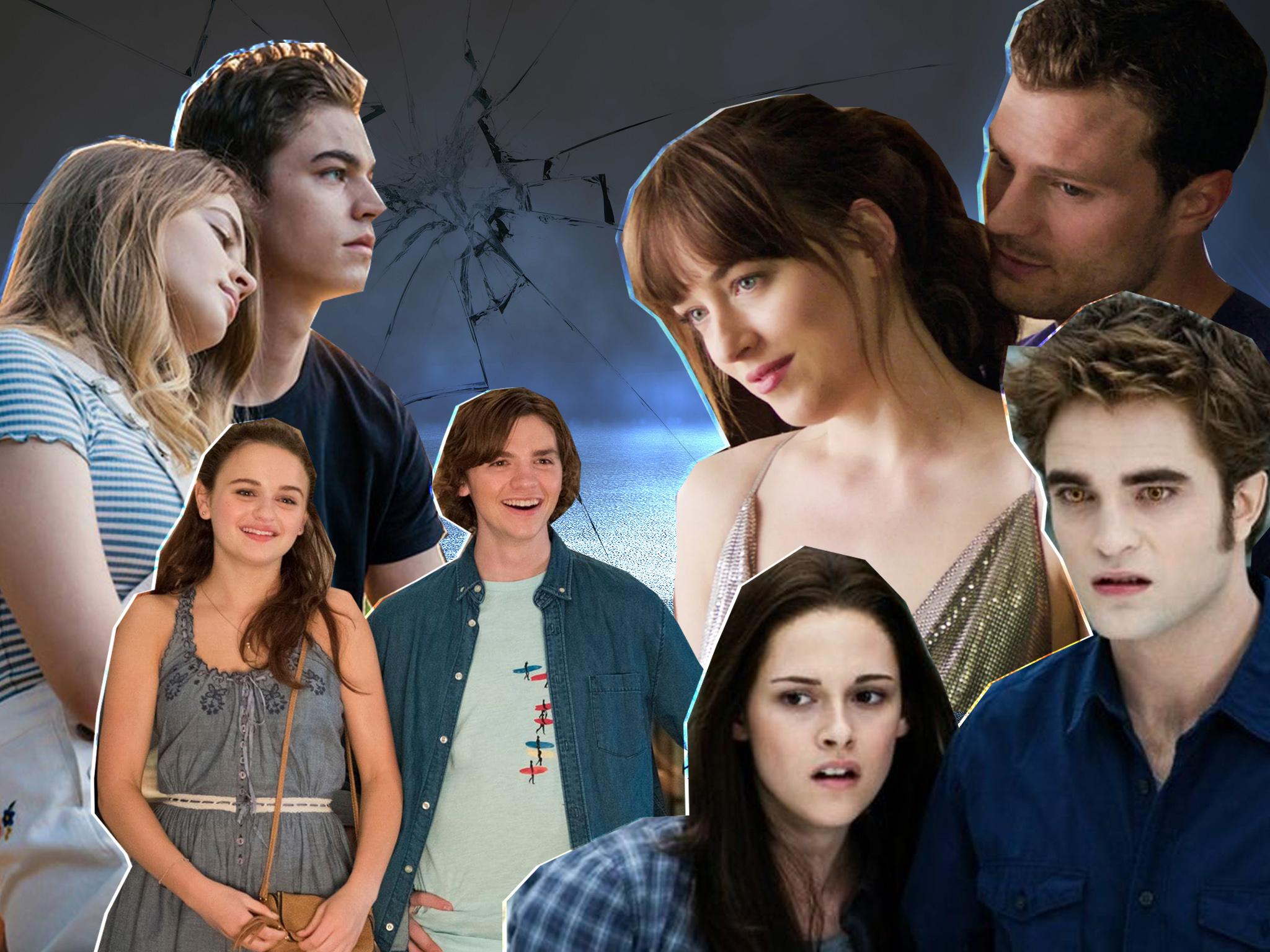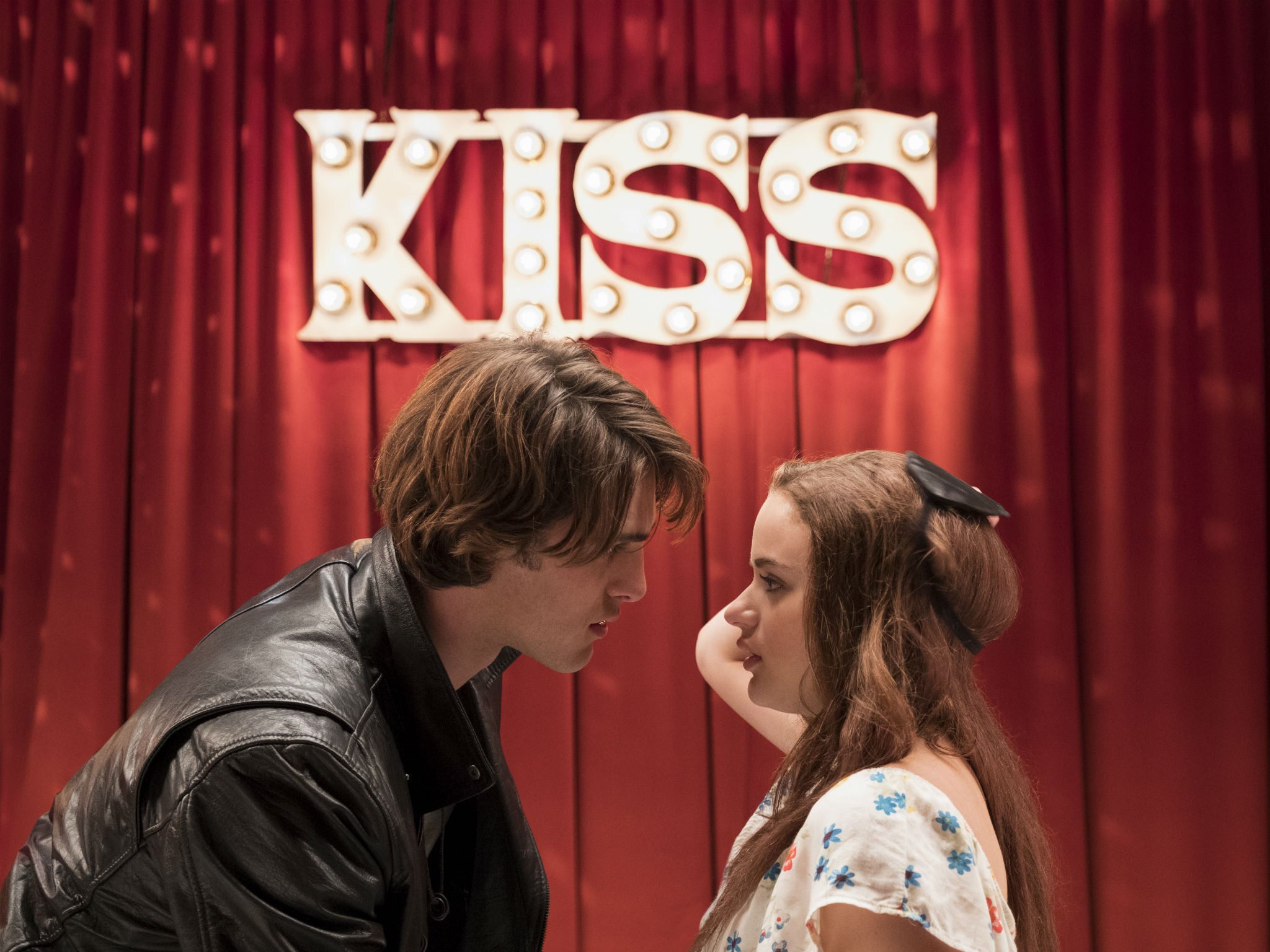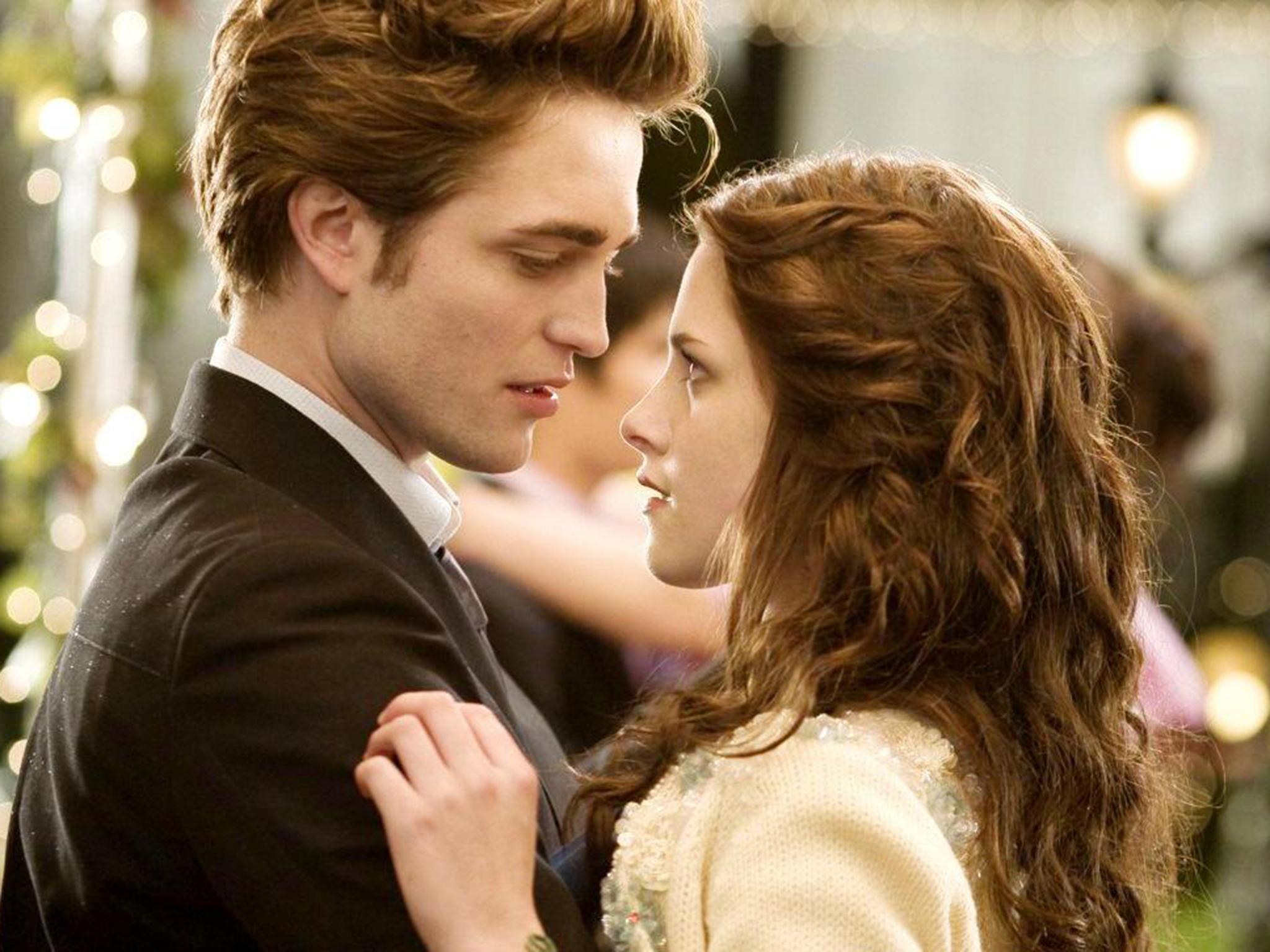From ‘After’ to ‘The Kissing Booth’ – the problem with toxic teen romances
With self-published authors proving a goldmine for streaming sites like Netflix seeking original content, Roisin O’Connor says writers and producers need to take more responsibility when it comes to the ‘romance’ being peddled to teenage girls


Your support helps us to tell the story
From reproductive rights to climate change to Big Tech, The Independent is on the ground when the story is developing. Whether it's investigating the financials of Elon Musk's pro-Trump PAC or producing our latest documentary, 'The A Word', which shines a light on the American women fighting for reproductive rights, we know how important it is to parse out the facts from the messaging.
At such a critical moment in US history, we need reporters on the ground. Your donation allows us to keep sending journalists to speak to both sides of the story.
The Independent is trusted by Americans across the entire political spectrum. And unlike many other quality news outlets, we choose not to lock Americans out of our reporting and analysis with paywalls. We believe quality journalism should be available to everyone, paid for by those who can afford it.
Your support makes all the difference.There are few cliches as popular in the teen romance genre as “you’re like a drug to me, I can’t stay away”. And you could argue that Stephanie Meyer, who drove millions of fans wild with her stories about the tortured romance between a vampire boy and a human girl, is the author who gave it teeth.
“I don’t have the strength to stay away from you anymore,” Edward Cullen tells Bella Swan in Catherine Hardwicke’s 2008 adaptation of Twilight. “You’re like my own personal brand of heroin.”
Such was the cultural phenomenon of the four-book, five-film saga that took $3.3bn (£2.6bn) at the global box office, it spawned a generation of copycats. This included the even-more successful Fifty Shades of Grey series, in which a brooding, possessive, jealous male lead finds it impossible to stay away from a virginal, naive girl who has “no idea” how beautiful she is.
As Netflix continues to roll out more original content, it seems to have found a goldmine in the shape of Wattpad, a self-publishing website where aspiring writers share their work along with feedback from readers and fellow authors. This is what happened for Welsh teenager Beth Reekles, whose debut novel The Kissing Booth became a minor phenomenon after being released as a feature film on Netflix last summer.
Despite its success, The Kissing Booth was overwhelmingly panned by critics for its overtly misogynistic tone, which includes a moment where Elle (Joey King) realises her soon-to-be-boyfriend Noah (Jacob Elordi) has been chasing away prospective love interests by threatening them with violence. Throughout the film, Noah instigates physical fights with their classmates and with his own brother, always with the excuse that they have somehow “insulted” Elle.
“When I first wrote the story, Twilight had become popular and all of the young adult stories I could find were paranormal romances,” Reekles said in an interview with the New York Times. “I just really wanted to read a regular high school romance, and when I couldn’t find that, I wrote my own.”

The thing is, The Kissing Booth isn’t at all different from Twilight when it comes to the most crucial factor: the author presents manipulative or downright abusive behaviour as romantic. According to the National Domestic Abuse hotline, there are 15 warning signs that you may be in an abusive relationship. A startling number of them fit these teen romance narratives, from jealous and possessive behaviour, attempts to keep her to himself, and violent outbursts along with consistent warnings (read: threats) that he will be violent, likely towards her.
The Kissing Booth is far from the only book, and film adaptation, to draw from Twilight for inspiration when it comes to a torrid romance. After, another Wattpad sensation by American author Anna Todd, was just released on Netflix UK as a feature film. While it is surprisingly tame given how much it heralds the “bad boy” nature of its male lead, it follows the same pattern: a naive, wholesome girl leaves home for university, where she encounters Hardin, whose friends describe him as “complicated” (when really, he’s just an arsehole) and who, in his own words, thinks Elizabeth Bennett in Pride and Prejudice “needs to chill”.
Hardin is played by Hero Feinnes-Tiffin – whose uncle, Ralph Fiennes, played Heathcliff in the 1992 adaptation of Wuthering Heights opposite Juliette Binoche’s Cathy. There’s a strange kind of irony there, given how After, 2016’s supernatural romantic drama Fallen and Twilight all make frequent references to classic works of literature such as Wuthering Heights, Romeo and Juliet and Pride and Prejudice – either to feign a sense of literary gravitas or to form a parallel with the tortured romances in those works.
They also all share a bizarre puritanical attitude when it comes to women having any kind of sexual agency. In Fallen, based on the 2009 novel of the same name by Lauren Kate, a high school boy dies in a fire that starts when he and the female lead appear to be moving towards having sex. She then gets sent to a school for troubled teenagers, where she is told that she will die if she kisses the boy with whom she has fallen in love. Bella in Twilight is forced to wait until marriage (Edward’s demand) before they can have sex, and is covered in bruises and becomes pregnant after her first time. She then suffers an excruciating and obscenely gory pregnancy before dying from childbirth, after which she is turned into a vampire. In After, and also the 2012 New York Times bestseller Beautiful Disaster, the female leads are desirable precisely because of the “purity” that is perceived from them being virgins.

It’s not “regular” or “romantic” when your boyfriend punches someone because he thinks they insulted you (After, The Kissing Booth, Twilight, Beautiful Disaster), or when they stalk you and turn up uninvited (Fifty Shades of Grey, Twilight, Fallen, Beautiful Disaster) or creep through your window and watch you sleep (Twilight), or order you when and when not to eat and drink (Twilight, The Kissing Booth, Fifty Shades of Grey, Beautiful Disaster). Presenting this behaviour as anything other than toxic is an incredibly dangerous and irresponsible message to sell to impressionable young girls who, as one of the more frank Kissing Booth reviews observed, “lap this crap up”.
It’s 2019. We’re supposed to be acknowledging certain behaviours are in fact abusive, not romantic, rather than offering an incentive to remain in a relationship with a controlling, jealous and violent man where the responsibility to change him is laid entirely on the woman. Female characters should be able to be sexual without being punished. The most depressing thing is that Twilight, Fifty Shades, Beautiful Disaster, After and The Kissing Booth were all written by women. Teenage girls deserve and need better stories than this.
Join our commenting forum
Join thought-provoking conversations, follow other Independent readers and see their replies
Comments